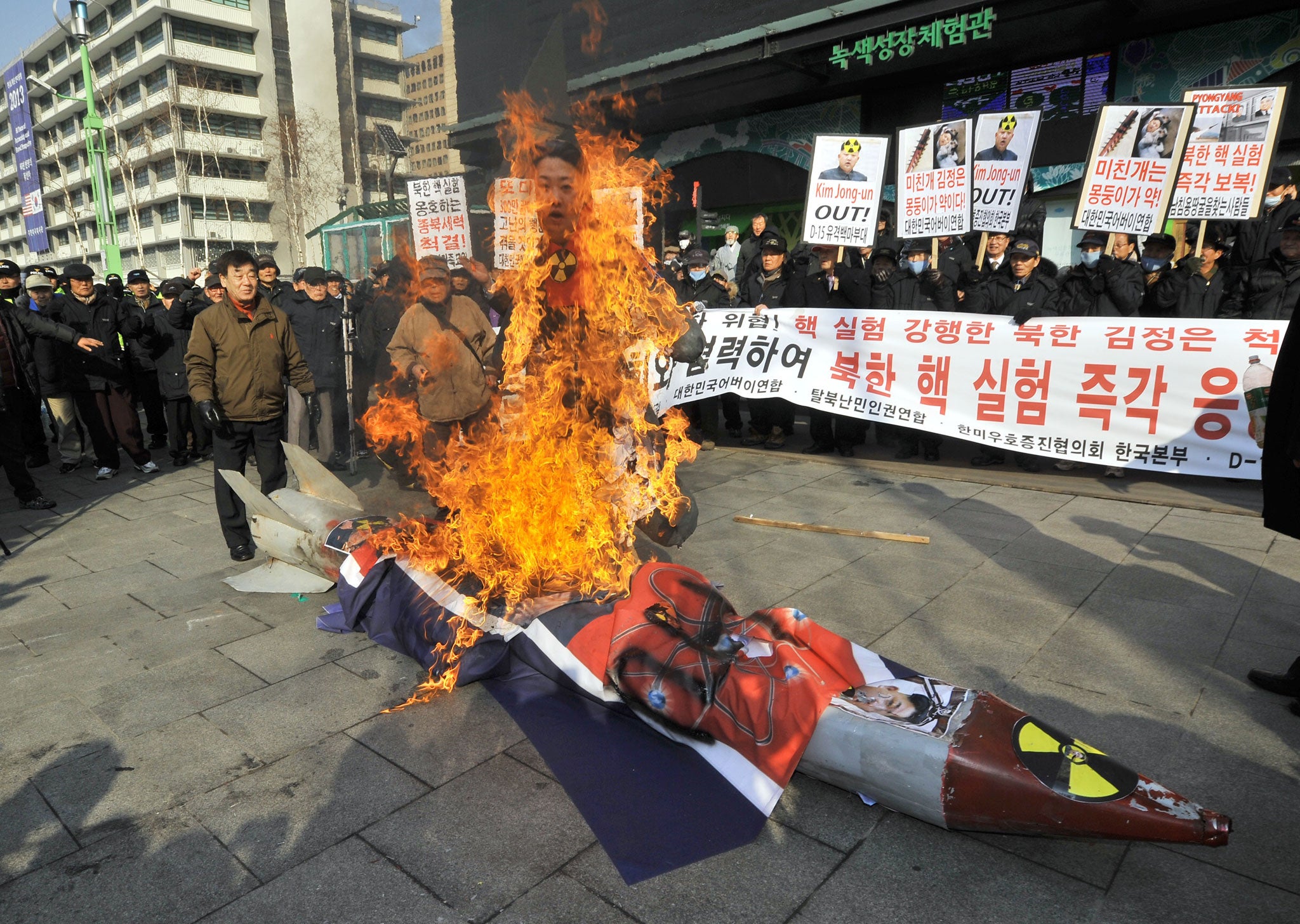It doesn’t help getting in a tizzy over North Korea
Plus, what the President didn't say in his State of the Union address

The neighbours worry that this could upset the security of the entire region, the experts are concerned that it represents a dramatic escalation in technology, the diplomats nod their heads and say: “This time they’ve gone too far. Even China condemns them.”
And just what are we going to do about it as William Hague, the Foreign Secretary, calls in the North Korean ambassador to warn him of the consequences of his “actions”.
What consequences? There’re hardly any more sanctions that can be put on a country which is pretty much excluded from world trade already. Condemning it in the UN? The hope, for lack of anything better, is that this latest gesture of belligerence will finally drive China, which does have trade with North Korea and provides food and fuel to it, to take action against its recalcitrant ally. But to expect Beijing to strong-arm Pyongyang into compliant behaviour is as idle as looking to South Africa to bring President Mugabe to heel. China’s new leaders don’t like what North Korea is doing. They wish it wouldn’t. But they are not going to do anything which might destabilise an ally which remains useful to them. Any regime change spells nothing but trouble for them.
It’s hardly the first time that the world has experienced this, of course. Right through the Cold War, the West faced aggressive regimes which we alternately sought to treat with or confront, neither course having much effect. Nor is it novel to have a state developing nuclear weaponry and thumbing their noses at the rest of the international community. It happened with Pakistan and India and we huffed and we puffed but, because they were important to the West, we didn’t bring the house down. With Israel, we chose to go along with a denial which everyone knew to be just a lie, but which it was more convenient to accept.
North Korea isn’t an ally, but it isn’t an enemy either in the way that we are making it. The simple reality we seem so reluctant to accept is that it is developing its nuclear weapons capacity not out of malice but because it is in its interests to do so. The more a country is isolated, the more formidable is the asset of nuclear weapons. North Korea continues testing because the greater its expertise, the greater the value in domestic propaganda and in foreign clout.
The more you “punish”, the more attractive going nuclear becomes. It’s the same with Iran. There, the only real brake is not external sanctions but an Islamic ideology that opposes the bomb and a founder who anathematised it.
Trying to bribe North Korea into giving up its nuclear ambitions – as we did in on-off discussions in the last decade – doesn’t really work. Lowering the heat on it might do some good, if nothing else, in undermining the fierce anti-US rhetoric that threats and sanctions have produced.
The only real way of changing the climate around nuclear proliferation, however, is by making a real international effort at disarmament. The West can’t put a stop to it by individual punishment but it has, in the Non-Proliferation Treaty, a means of bringing nuclear powers into the fold and it has, in agreeing to progressive disarmament on its part, an example to show others.
At the end of the day, what is the use of having nuclear weapons, for us or for North Korea? They only work as a threat not in their exercise. Continuing to develop them makes a lot less sense to North Korea or anyone else if it’s done against a universal tide flowing in the other direction.
What the President didn’t say
He ignored it in his inaugural address and everyone said it wasn’t the occasion to discuss international affairs. Well, the State of the Union address has come and gone and there was only the most cursory mention of it there either.
When will America’s allies get it about Obama? He came into office on a general public revulsion against the Bush policy of foreign adventures and that is exactly the policy he has followed. He’s withdrawn the troops from Iraq and set a date for their withdrawal from Afghanistan. And, for that, we in Britain should be profoundly grateful. If he has disappointed those who thought he would provide some moral leadership in the world towards a different future, at least he’s fought shy of new entanglements.
Instead, he has defined his challenge for the second term as a legislative push on a Congress dominated by the opposition. It’s a necessary task and may be a noble one, but the worry for America’s friends is that it is not one that he’s good at. If he has read those volumes of Robert Caro’s biography of LBJ – as everyone else in Washington appears to have done – he seems unable to learn the lessons of it.
Join our commenting forum
Join thought-provoking conversations, follow other Independent readers and see their replies
Comments
Bookmark popover
Removed from bookmarks